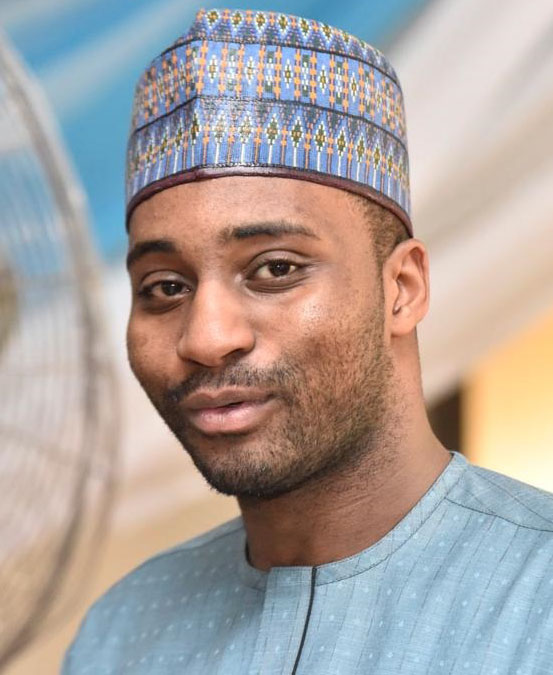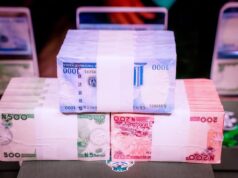Administrator of Kaduna Capital Territory Authority (KCTA), MUHAMMAD HAFIZ BAYERO, unfolded his plans for a sustainable and clean city, in the interview below with Abdallah Yunus Abdallah
Last Friday, to mark the World Earth Day, Kaduna was cleaned up from five strategic points. Will this be a continuous process going forward?
We commemorated the World Earth Day on Friday 22nd of April. This is a yearly event and we started this year but we hope that next year, the event will be even bigger. We had 503 residents of this state who turned up and helped clean the city. We thanked them most sincerely because without their efforts, we would not be here talking about the event being a success. It is going to be a continuous thing, you recall that the state has stopped the monthly sanitation and we have not decided yet, but we are looking at ways of reviving the monthly exercise. We are consulting with communities, with environmentalists, with the Ministry of Environment and Kaduna State Environmental Protection Agency (KEPA), to see how we can do this in a manner that is robust and enables us to achieve what we want.
One of the criticisms against the monthly sanitation when it was being held, was that it disrupted businesses and social events on Saturdays because it took place in the morning hours of from 8a.m. to 10a.m. Are you going to do things differently?
Yes, if it was going to happen we must start earlier at 6a.m. There is no point commencing clean up at 8a.m. because by that time, everybody would have set out for the day; even if it’s Saturday. There are people who go to market, people who go out for business. People also travel on Saturdays, there are people who engage in sporting activities also around that time. Whatever we are going to do, we are aware of the faulty timing of the initial one. There is nothing that stops you from starting at 6a.m. and terminating at 8a.m. So, if we are going to go ahead and do this, the two hours that we are going to provide for this will be between 6a.m. and 8a.m.
Beyond cleaning up, what are government’s plans regarding refuse evacuation and illegal dump sites?
We inherited a very faulty system, and we had spent the last three months trying to clean up and present a plan that would serve Kaduna city and its residents better. Initially, Kaduna city was just one lot and it was given to just one contractor to clean up. And at the same time, on the other hand, we are going to enforce a pollution fee principle through KEPA, which requires businesses, residences and industries to pay some specified amount as provided for in the KEPA Law, as the cost of evacuation of their wastes.
So, we have broken the city down into 10 lots; we have put up an advertisement and 23 companies have responded. We are at the point of reviewing their submissions before presenting it to the governor for his final approval. Once that approval is given, we will mobilise them to the lots of their choice and they would be on probation for three months. We will monitor what they are doing everyday because we are determined to end these illegal dumpsites. These illegal dumpsites exist because there is no adequate system of managing waste right from the point of production to the point of evacuation.
We are still calling on our residents that there are better ways of waste disposal. We are calling on them to cooperate with us; we will be providing more receptacles, but we urge them to manage wastes from their households. When you produce your waste from your household, you tie it up, and we will tell you the designated point where you can deposit them in every community. We hope that, when we do this, the residents of the city will work with us to ensure that this method works.
And we will be measuring the performance of these companies that would be evacuating the wastes. We will also be listening to the feelers from residents of communities to tell us how they feel, how well the company is doing. We are working on an App called the Kaduna City App, which would allow residents to snap pictures from their localities within the city and report non-evacuation of wastes. So, if, for example, we receive a number of reports from a particular location that those responsible are not evacuating these wastes, we know the contractor to hold responsible.
We are also looking at the cleaning times. The city should not be cleaned when activities are going on; all cleaning activities should happen from say, the hours of 10p.m. and must cease by 7a.m. We don’t want a situation where people are setting out for their businesses or starting their day and they are running into refuse trucks. Or refuse trucks are stopping at locations to pick up wastes when people are trying to get to their work places.
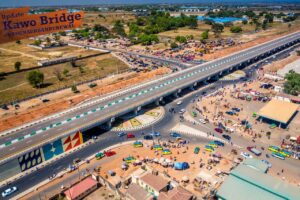
Right now, cleaning is localised along just major roads. Are you thinking of extending them to side streets, corners and inner cities in this new template?
Yes. This is what it addresses. Because before we have just one person, so they usually clean the major roads where people in government will see what they are doing. I went with you to the inner streets, you saw the kind of mess that we are dealing with. We do not want to play the ostrich, so we decided to face it head on. We could have done the same of what obtained before, by just focusing on major streets and telling everybody that Kaduna is clean. But we are the city managers and it is our job to now ensure that whatever happens on major streets cascades to inner streets, the “lungus’’ and all that.
So, in addition to giving them a particular lot, what we are going to do is some sort of route mapping, showing the route that individual evacuators are expected to follow. So, even if your house does not fall under that route, we will provide pick-up points for your waste. We will provide a 20-ton receptacle where you can dump it, if the vehicle does not pass through that point. And we are also producing bins with wheels and tyres, so that they can be easily mounted on the trucks for easy evacuation.
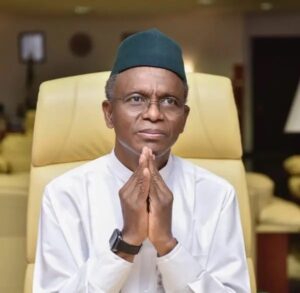
Governor Nasir El-Rufai
Are you exploring the concept of waste to wealth, whereby people will get paid for taking their wastes somewhere, where they will be recycled, which will invariably reduce the incidence of indiscriminate dumping of refuse?
Well, this is a model every city that wants to be sustainable must think about but like I said, we are now at this very early stage; when we get this right, our goal is to keep improving to where then you start sorting your waste from source. That means glass, plastic, paper and then other types of waste will be sorted out. We are going to get to the point where people are going to see the value of waste but even in the dump sites, there would be sorting in that location. We plan to concession our dumpsites and we allow people who have displayed the capacity to recycle, to go in there and do the sorting themselves. What cannot be recycled is further pushed down, what can be recycled is removed from there and they recycle it into other uses, particularly plastics, which is not non-biodegradable. Plastics should not be allowed to go into the soil. In fact, we are looking at how to come up with a law that bans plastics in the next five years in the city.
You talked about dredging river Kaduna, does Kaduna Capital Territory Authority have the capital outlay to do that because the federal government is stuck at Baro….
Yes, we are desilting the Kaduna river and dredging all its tributaries, particularly those in flood prone areas. Thankfully, we included it in our budget since last year, so we can afford to do it. In fact, we have received approval from His Excellency, the governor to go ahead and do so. We have found two companies that we believe have the capacity to carry out this very important function and we are going to start in the next two weeks. The entire exercise will last 15 days. This would be the first dredging of the Kaduna river on this scale; many attempts have been done to desilt here and there but this is the first time that we are doing this and for us this is the kind of ambition that we have.
Last year, a lot of money was spent by people whose houses were flooded, the flood even claimed some lives. There was the cholera outbreak that lasted close to six months and so on. We had to start chlorinating the wells and water sources in Kaduna, the entire cost and the repercussions of the flooding is about five times what we are currently going to spend to ensure that this does not happen, at least for the next three years. We would be desilting the river every three years while at the same time encouraging people to stop dumping refuse in their drainages and to stop dumping refuse inside the river.
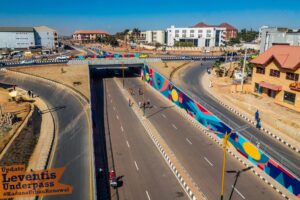
SANITATION FACTS
-Kaduna Capital Territory Authority is devising more robust ways to clean up the city and make it more environmentally-friendly;
-It will introduce payment of pollution fee, where businesses, residences and industries will pay for the evacuation of their wastes;
-KCTA is determined to stop the indiscriminate dumping of refuse and will close down all illegal dumpsites;
-The city has been divided into 10 lots and 23 companies have indicated interest to evacuate and dispose refuse properly;
-KCTA will monitor these companies when they start operating and an App will be developed so that residents can also report lapses;
-Residents are advised to better manage their household wastes, by tying them in bundles and dropping at designated points where they will be evacuated;
-More Receptacles will be provided so as to ease the collection of wastes from households;
-Cleaning times will be done at off-peak periods of between 10pm to 7am;
-KCTA is also considering the re-introduction of monthly sanitation exercise between 6am to 8am on the last Saturday of the month.
- Army detains 2 soldiers over theft of cables in Dangote Refinery - April 17, 2024
- EFCC to Nigerians: Obstruct our operations, risk 5 years in jail - April 17, 2024
- Alleged N80.2bn fraud: EFCC sets to arraign Yahaya Bello April 18 - April 17, 2024



